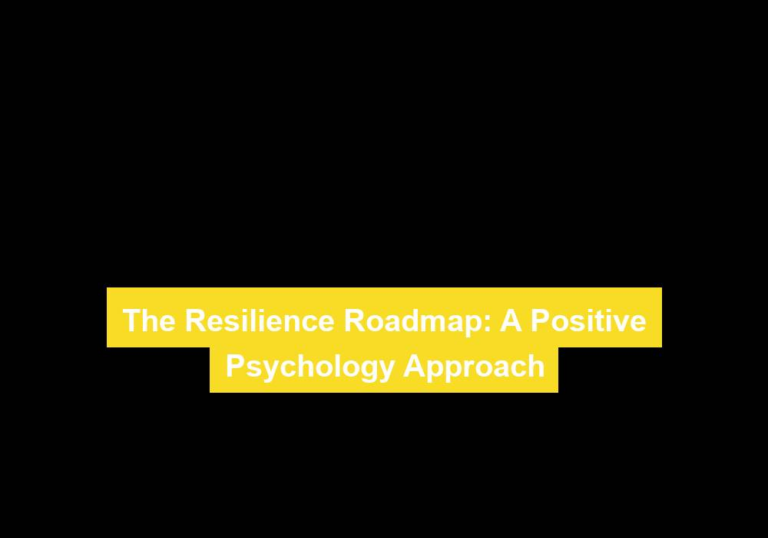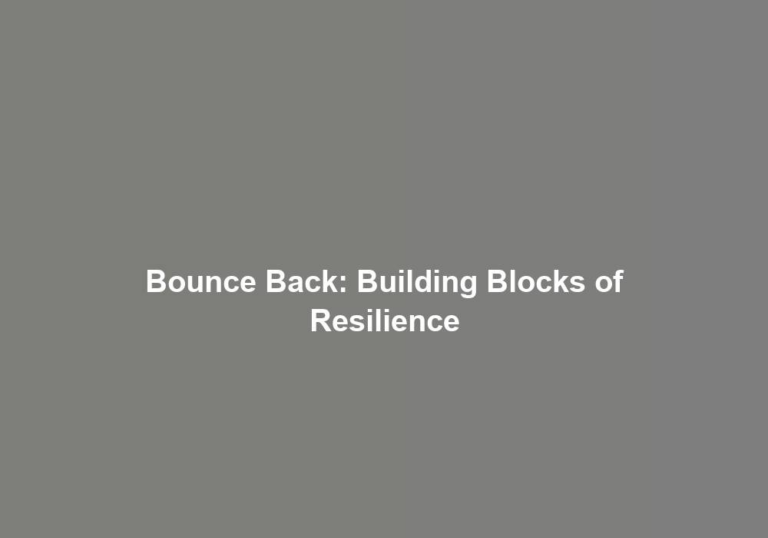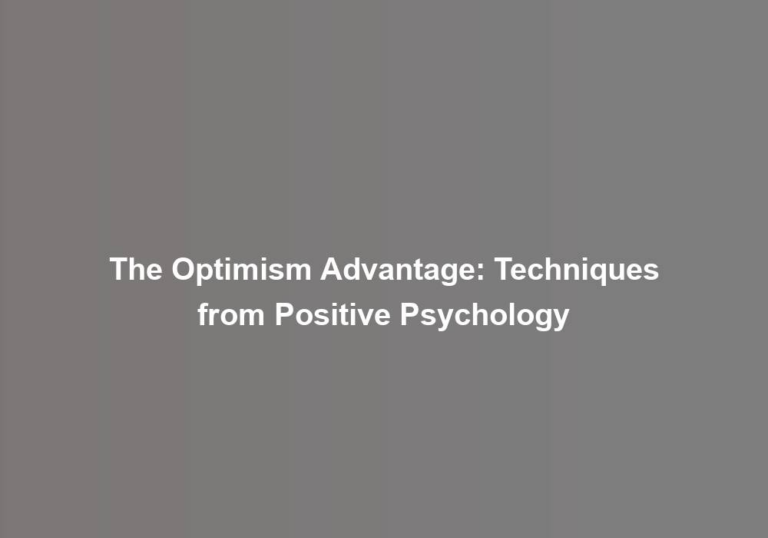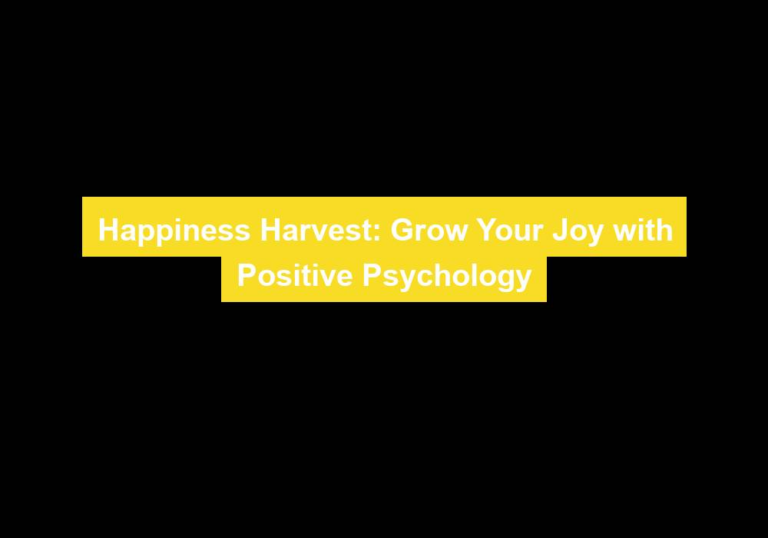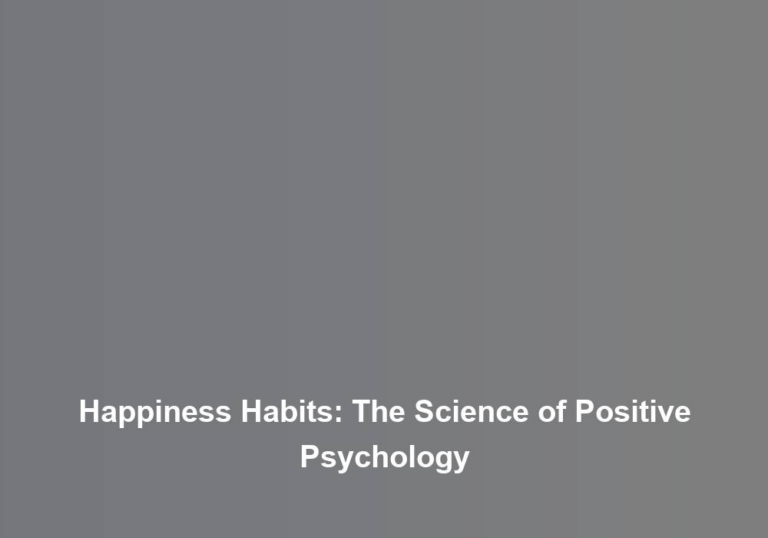The Happiness Formula: Positive Psychology Insights
Are you searching for the key to a more fulfilling and content life? What if there was a formula for happiness, a set of insights and practices that could truly enhance your well-being? The field of positive psychology offers a wealth of evidence-based strategies that can help you cultivate joy, build resilience, and foster meaningful connections. By understanding the science of happiness and integrating its principles into your daily life, you may find yourself on a path towards a more satisfying and fulfilling existence.
The Science of Happiness
Discover the key principles behind the science of happiness and how they can transform your life. Happiness studies have revealed that cultivating a positive mindset is essential for leading a fulfilling and contented life. Research in the field of positive psychology suggests that happiness is not solely determined by external factors, but rather, it is deeply influenced by our internal outlook and mindset. This means that you have the power to shape your own happiness through intentional practices and thought patterns.
Positive psychology insights emphasize the importance of adopting a positive mindset, which involves focusing on strengths, gratitude, and optimism. By consciously directing your attention towards the good in your life, you can rewire your brain to become more attuned to positive experiences, leading to an overall increase in happiness and life satisfaction. Cultivating a positive mindset doesnG??t mean ignoring lifeG??s challenges or difficulties, but rather approaching them with resilience and a belief in your ability to overcome obstacles.
Understanding the science of happiness can empower you to make intentional choices that contribute to your overall well-being. By incorporating the key principles of happiness studies into your daily life, you can create a more positive and fulfilling existence. Embracing a positive mindset not only enhances your own happiness but also has a ripple effect on those around you, fostering a sense of belonging and connection within your community.
Understanding Well-being
Understanding well-being involves recognizing the interconnectedness of your physical, emotional, and mental states, and how they contribute to your overall quality of life. ItG??s fascinating to delve into the extensive well-being research and understand the factors that contribute to happiness. Your well-being is not just about momentary pleasures but encompasses a deeper sense of fulfillment and purpose.
Research shows that physical well-being, including regular exercise, a balanced diet, and adequate sleep, forms the foundation of your overall happiness. When you take care of your body, you are better equipped to handle the challenges of daily life and experience a greater sense of vitality.
Emotional well-being involves understanding and managing your emotions effectively. ItG??s about being in tune with your feelings, having healthy relationships, and cultivating a sense of optimism and resilience. Your emotional state significantly impacts your overall satisfaction and contentment.
Additionally, mental well-being encompasses factors such as mindfulness, self-acceptance, and personal growth. Developing a positive mindset, engaging in lifelong learning, and setting meaningful goals all contribute to your mental well-being.
Understanding the interconnected nature of these aspects is crucial for achieving a balanced and fulfilling life. By nurturing your physical, emotional, and mental well-being, you can enhance your overall quality of life and experience a deeper sense of happiness and contentment.
Keys to Positive Emotions
YouG??ve likely experienced moments of positive emotions that have left you feeling uplifted and content. Understanding the keys to positive emotions can help you cultivate these feelings more consistently in your daily life. Emotion regulation techniques, gratitude, and mindfulness are some of the essential tools that can contribute to fostering positive emotions.
Emotion Regulation Techniques
By learning effective emotion regulation techniques, individuals can cultivate a greater sense of control over their positive emotions, leading to improved well-being and resilience. Emotion regulation is crucial for managing stress and promoting a balanced emotional state. Here are three key techniques that can help you enhance your emotional well-being:
- Mindfulness practices: Engaging in mindfulness meditation and deep breathing exercises can help you stay present and regulate your emotions more effectively.
- Cognitive reappraisal: This technique involves reframing your thoughts about a situation to see it in a more positive light, which can lead to a shift in your emotional response.
- Self-care routines: Prioritizing self-care activities such as exercise, adequate sleep, and spending time with loved ones can significantly contribute to regulating your emotions and fostering a positive outlook on life.
Gratitude and Mindfulness
In cultivating a mindset of gratitude and mindfulness, individuals can unlock the keys to experiencing positive emotions and enhancing their overall well-being. Engaging in a gratitude practice allows you to focus on the abundance in your life, shifting your perspective towards the positive aspects. By acknowledging the things you are thankful for, you cultivate a sense of appreciation and contentment. Mindfulness meditation, on the other hand, enables you to stay present in the moment, heightening your awareness of your thoughts and emotions without judgment. This practice can help you manage stress and anxiety, leading to a more balanced and serene state of mind. Incorporating gratitude and mindfulness into your daily routine can foster a deeper sense of connection with yourself and others, ultimately contributing to your overall happiness and well-being.
Cultivating Joyful Relationships
Building meaningful connections, cultivating positive communication habits, and sharing joyful experiences are essential for nurturing joyful relationships. By fostering a supportive and empathetic environment, you can strengthen your bonds with others and create a positive atmosphere for growth and happiness. Embracing these key points can help you cultivate joyful relationships that bring fulfillment and positivity into your life.
Meaningful Connections
Creating joyful relationships is essential for cultivating meaningful connections that contribute to our overall well-being and happiness. When it comes to deep relationships and social support, here are some vital insights to help you foster meaningful connections:
-
Authentic Communication: Engage in open, honest conversations that promote understanding and trust. Sharing your thoughts and feelings while actively listening to others fosters deep, meaningful connections.
-
Emotional Support: Offer and seek emotional support from those in your social circle. Providing empathy and compassion during challenging times strengthens bonds and creates a sense of belonging.
-
Shared Activities: Participating in shared activities or hobbies with others creates opportunities for bonding and building joyful relationships. Whether itG??s cooking together, exercising, or simply spending quality time, shared experiences can deepen connections and enhance overall happiness.
Positive Communication Habits
To foster joyful relationships, itG??s essential to cultivate positive communication habits that build upon the meaningful connections youG??ve already established. Effective listening is a cornerstone of positive communication. It involves not only hearing the words that are spoken but also understanding the emotions and intentions behind them. When you truly listen to someone, it shows that you value their thoughts and feelings, strengthening the bond between you. Additionally, encouraging feedback is crucial for open and honest communication. It creates a safe space for both parties to express themselves and contributes to mutual understanding. By actively seeking and providing feedback, you demonstrate a genuine interest in nurturing the relationship. These habits lay the groundwork for meaningful, joyful connections, fostering an environment where both you and your loved ones can thrive.
Shared Happy Experiences
When you actively engage in shared happy experiences with your loved ones, it deepens the emotional connection and strengthens the foundation of joyful relationships. Group activities play a crucial role in fostering collective joy and creating lasting memories. When you participate in group activities such as game nights, outdoor adventures, or volunteering together, you create opportunities for shared laughter and bonding. These experiences build a sense of togetherness and solidarity, contributing to a deeper sense of belonging within your social circle. Engaging in collective joy not only amplifies individual happiness but also strengthens the emotional ties that bind you with your loved ones. ItG??s these shared experiences that create the fabric of your relationships, weaving together moments of joy and connection that endure over time.
Practices for Gratitude and Resilience
Practicing gratitude and resilience can significantly improve your mental and emotional well-being, leading to a more fulfilling and balanced life. Gratitude practices have a profound impact on your overall happiness. Taking time each day to reflect on the things you are grateful for can shift your focus from what you lack to what you have, fostering a sense of abundance and contentment. Consider keeping a gratitude journal, noting down three things you are thankful for each day. This simple practice can train your mind to notice and appreciate the positive aspects of your life, boosting your resilience in the face of challenges.
Resilience building is essential for navigating lifeG??s inevitable ups and downs. Cultivating resilience involves developing a mindset that allows you to adapt and bounce back from adversity. One effective way to build resilience is to reframe negative situations and setbacks as opportunities for growth. Embracing the belief that you have the ability to overcome difficulties can empower you to face challenges with courage and optimism. Additionally, nurturing supportive relationships and seeking help when needed are crucial aspects of resilience.
Incorporating gratitude practices and resilience building into your daily life can create a positive ripple effect, enhancing your well-being and outlook on life. By fostering gratitude and resilience, you can cultivate a greater sense of belonging and purpose, ultimately leading to a more fulfilling and satisfying existence.
Pursuing Meaning and Purpose
Developing a clear sense of meaning and purpose in your life is foundational to experiencing lasting fulfillment and satisfaction. ItG??s about finding fulfillment in your everyday life and living purposefully. As you seek to pursue meaning and purpose, consider the following insights:
-
Identify Your Values: Take the time to reflect on what truly matters to you. What are the core principles and beliefs that guide your life? Identifying your values provides a roadmap for making decisions and setting meaningful goals aligned with what truly resonates with you.
-
Set Meaningful Goals: When setting goals, consider not only what you want to achieve, but also why it matters to you. Meaningful goals are aligned with your values and contribute to a sense of purpose. They provide direction and motivation, helping you to lead a more purposeful life.
-
Contribute to Something Bigger: Engage in activities that allow you to contribute to a cause or community that you believe in. Whether itG??s volunteering, supporting a charity, or participating in initiatives that make a positive impact, contributing to something bigger than yourself can bring a profound sense of meaning and purpose to your life.
Conclusion
So, now that youG??ve learned about the science of happiness and the keys to positive emotions, itG??s important to remember that practicing gratitude and resilience can make a big impact on your well-being. Did you know that 40% of our happiness is within our control, based on intentional activities and practices? ItG??s empowering to know that we have the ability to cultivate our own happiness and live a more fulfilling life. Keep practicing these strategies and see the difference it makes in your life.


